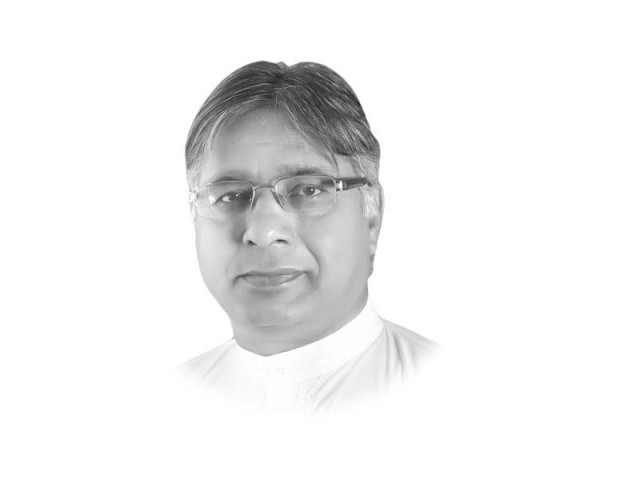The myth of the minorities’ commission
My search for truth about Pakistan’s National Commission for Minorities ends on a sad discovery

The writer is a freelance journalist, specialising in international law, rural development and public policy, and a director of the Centre for Social Justice
In neighbouring India, an independent and permanent NCM had been set up in 1992, augmented by a national commission for minority educational institutions in 2004. In 2006, a high level committee headed by Justice (retd) Rajindar Sachar prepared a report on the social, economic and educational status of the Muslim community of India, earning worldwide acclaim for quality and objectivity. Moreover, a parliamentary committee had been set up to see that the recommendations of the Sachar committee were implemented in letter and spirit. A Pakistani NCM should not be far away, I thought.
My perseverance survived me to witness the famous judgment of the Supreme Court on June 19, 2014. The Court ordered (para 37 (IV)) that “A National Council for Minorities’ Rights be constituted. The function of the said Council should inter alia be to monitor the practical realisation of the rights and safeguards provided to the minorities under the Constitution and law. The Council should also be mandated to frame policy recommendations for safeguarding and protecting minorities’ rights by the Provincial and Federal Governments.” Apparently, the apex Court, too, was uninformed of the existence of the NCM.
However, before the Supreme Court bench conducting a hearing regarding the compliance of the aforementioned judgment in December 2014, the federal government’s lawyer claimed that an NCM had been set up under the Ministry for Religious Affairs, which is formulating a policy on interfaith relations and national harmony. Furthermore, Pakistan’s compliance reports to the UN treaty monitoring bodies, including the one on the Convention on Elimination of Racial Discrimination in 2009 and 2015 reiterated the claims that a well-functioning NCM existed. While Jinnah Institute’s report “The State of Religious Freedom in Pakistan” launched as recently as January 2016 in Islamabad challenged the effectiveness of the NCM, our official report to the UN Committee on the Rights of the Child, on March 10, 2016, boldly insisted that the NCM was a vibrant body.
In an ironic contrast, however, a month before this report landed in UN offices in Geneva, our National Action Plan for Human Rights, announced on February 26, pledged to prepare and submit a bill for establishing a statutory NCM till December 2016. This was an indirect confession that an NCM never existed in the form and function of a commission — similar to the National Commission on Status of Women or the National Commission for Human Rights. No wonder, we never saw any performance of the NCM in past decades amidst all the claims. My search for truth about Pakistan’s NCM ends on a sad discovery. We, the citizens, are confronting a mountain of ignorance about the rights’ framework and an arrogant indifference by the administration. This non-committal, rather hypocritical, attitude towards rights of marginalised people has to change. Fooling academia, courts, international bodies and the people at large has negative repercussions on the enjoyment of rights, and consequently, on the progress of Pakistani democracy and stability.
The structural imbalance created against religious minorities by embedded discrimination in the political system cannot be repaired without establishing a body empowered to inculcate much-needed policy reforms besides helping come up with remedies against serious violations of human rights. Besides mandates, an active cooperation on part of our political masters and the bureaucracy is crucial for allowing human rights institutions to impact the quality of life available to people through reforms in the political and social systems. It is important that a legally empowered, resourced, permanent and independent NCM is formed without further delay. The guidelines provided by the Supreme Court need to be adhered to in a bid to salvage Pakistan from its rights’ deficit. Moves aimed at crippling human rights bodies in the country, before and after their coming into existence, must be tackled by relevant stakeholders.
Published in The Express Tribune, May 26th, 2016.
Like Opinion & Editorial on Facebook, follow @ETOpEd on Twitter to receive all updates on all our daily pieces.














COMMENTS
Comments are moderated and generally will be posted if they are on-topic and not abusive.
For more information, please see our Comments FAQ